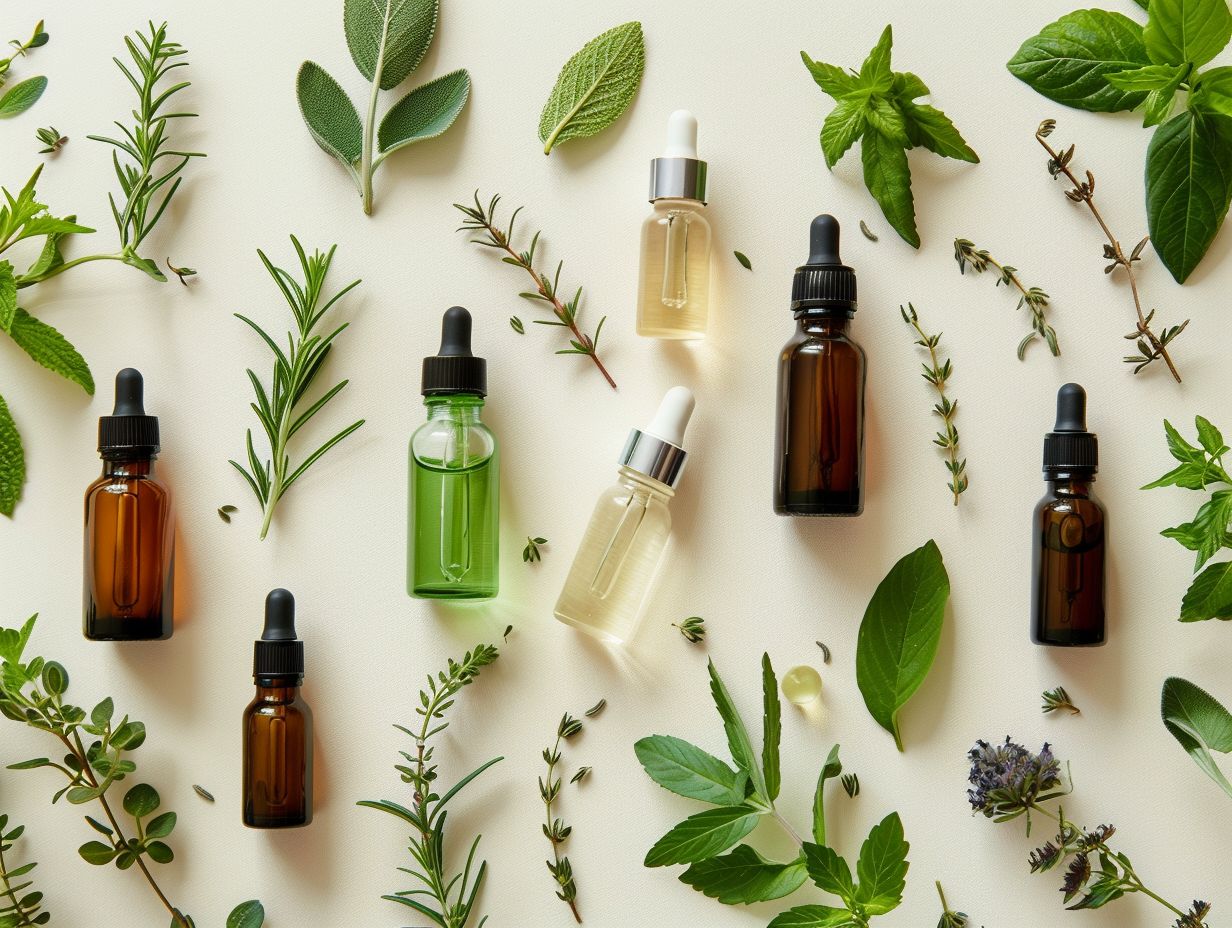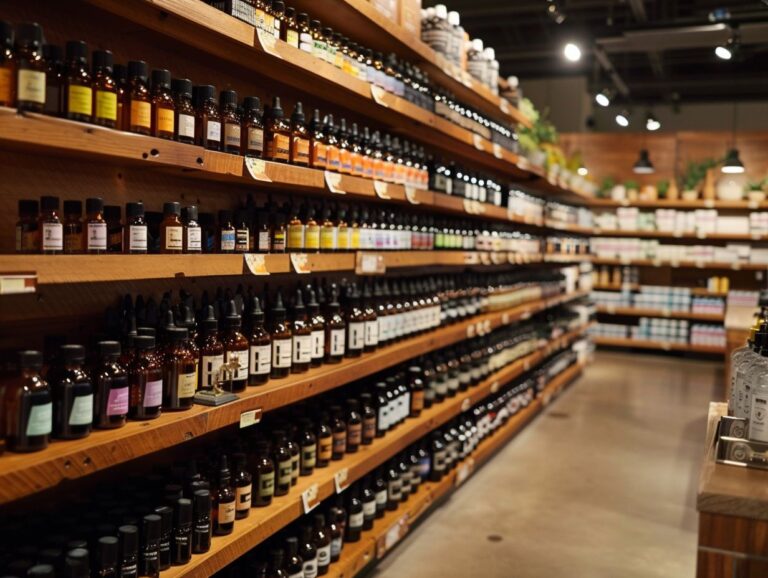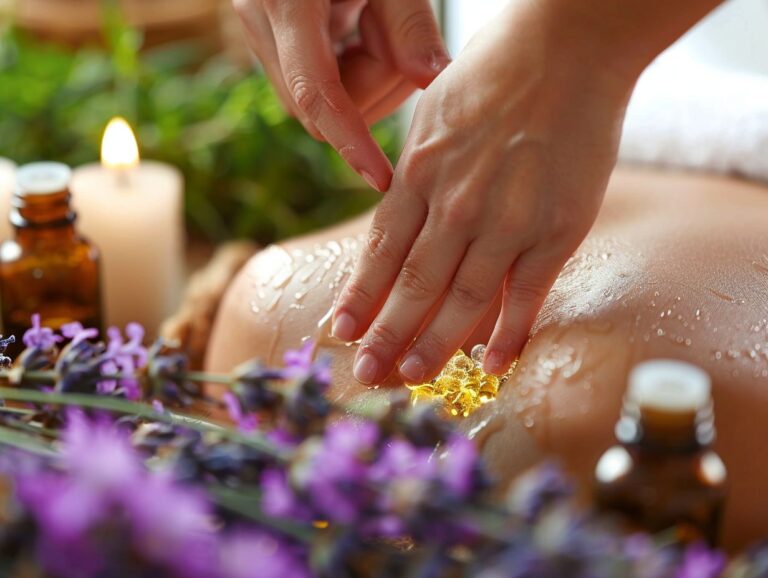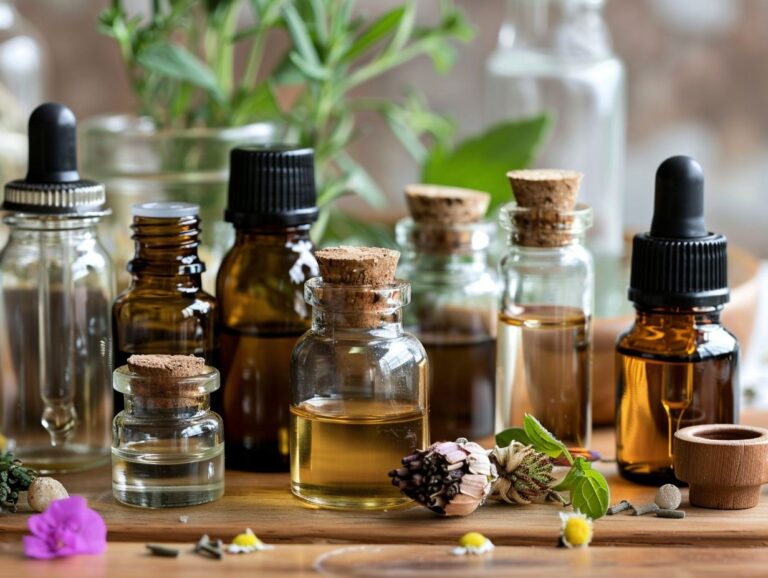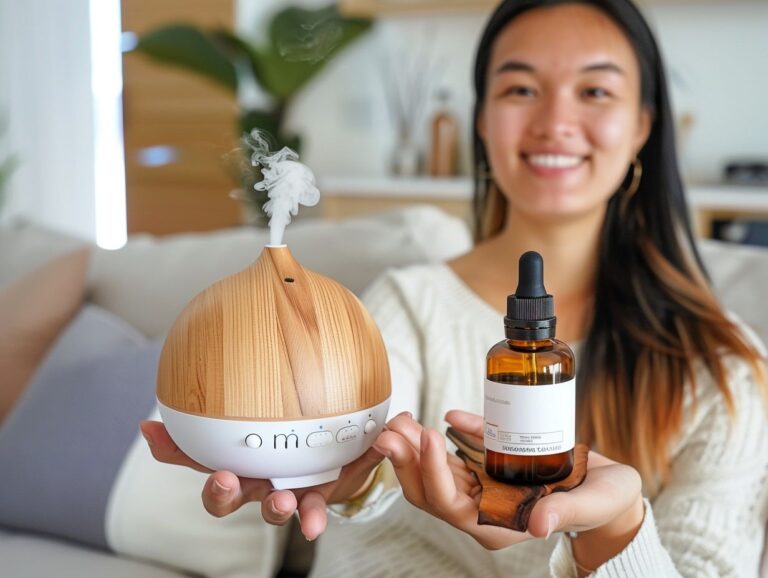What Essential Oils Are Good for Swelling and Bruising
Essential oils have been used for centuries for their various health benefits, including reducing swelling and bruising.
Explore what essential oils are, how they work, and the benefits of using them for swelling and bruising.
Discover the best essential oils for these purposes, how to use them safely, potential side effects, and when to seek medical attention for swelling and bruising.
Key Takeaways:
What Are Essential Oils?
Essential oils are concentrated liquids derived from plants containing aromatic compounds. These oils are commonly used in aromatherapy and skincare due to their potent properties and natural origins.
Extracted through methods like distillation or cold pressing, essential oils retain the essence of the plant they are derived from. In skincare, these oils are prized for their versatile benefits, from soothing irritated skin to rejuvenating aging skin. The potency of essential oils means that only a few drops are needed to experience their effects, making them a cost-effective and natural alternative in skincare routines. Along with their pleasant scents, essential oils offer a holistic approach to skincare, leveraging the capabilities of nature to enhance the skin’s health and appearance.
How Do Essential Oils Work?
Essential oils work by interacting with the skin and body through absorption and inhalation. When applied topically, they penetrate the skin’s layers, affecting blood circulation and promoting healing processes.
Upon contact with the skin, essential oils absorb into the bloodstream through tiny capillaries, where their therapeutic properties begin to take effect. Once absorbed, these potent oils can reach various organs and tissues, influencing cellular function and promoting overall well-being.
Inhalation of essential oils also plays a vital role in their mechanisms of action. Upon entering the lungs, the molecules travel directly to the bloodstream, exerting immediate effects on the body and mind. This process of inhalation can trigger a cascade of physiological responses, such as relaxation, improved focus, and a boost in mood.
What Are the Benefits of Using Essential Oils for Swelling and Bruising?
Using essential oils for swelling and bruising offers multiple benefits, including anti-inflammatory properties that help reduce swelling, pain relief through natural analgesic effects, and enhanced blood circulation to aid in the healing process.
Specific oils like lavender, chamomile, and rosemary are highly regarded for their therapeutic properties. Lavender not only reduces inflammation but also has a calming effect on the mind. Chamomile’s anti-inflammatory and analgesic properties make it an excellent choice for soothing pain and relaxation. Rosemary is known for its ability to improve blood circulation, speeding up the healing process of bruises and reducing swelling.
By incorporating essential oils into your healing routine, you can harness nature’s remedies to address bruises and swelling in a holistic manner. The synergy of these oils not only targets the physical symptoms but also promotes emotional well-being, making the recovery process more comprehensive and effective.
Anti-inflammatory Properties
Essential oils such as lavender and chamomile are renowned for their potent anti-inflammatory properties, making them effective in reducing swelling and inflammation associated with bruises.
Both lavender and chamomile essential oils have been found in numerous studies to possess powerful anti-inflammatory qualities. Research indicates that the compounds present in these essential oils can help decrease the production of pro-inflammatory cytokines, which play a key role in the inflammatory process.
The soothing properties of chamomile and the calming effects of lavender can provide relief from pain and discomfort caused by swelling. These essential oils can be used topically by diluting them with a carrier oil such as coconut or almond oil for massage or in a diffuser to inhale the calming vapors.
Pain Relief
Lavender essential oil is a popular choice for pain relief when applied topically to the bruised area. Diluted with a carrier oil, lavender can help alleviate discomfort and promote skin repair.
Topical application of lavender essential oil on bruises provides a gentle yet effective way to reduce pain and inflammation. The soothing aroma and therapeutic properties of lavender have been known to offer relief from soreness. Through its analgesic and anti-inflammatory effects, lavender oil aids in calming the affected area, easing muscle tension, and promoting a sense of relaxation.
When using lavender essential oil for pain relief, it is crucial to dilute it properly with a carrier oil such as coconut, almond, or jojoba oil to prevent skin irritation or sensitization. This dilution process ensures that the potent properties of lavender are safely delivered without any adverse reactions, allowing for enhanced absorption and optimal benefits.
Improved Circulation
Essential oils like lavender can boost blood circulation, aiding in the delivery of nutrients and oxygen to the affected areas, which accelerates the healing process of bruises.
This enhanced circulation helps in reducing inflammation and promoting tissue regeneration. The improved blood flow allows for a faster removal of metabolic waste products from the injured area, which supports the healing process. By increasing nutrient delivery to the tissues, lavender essential oil acts as a natural remedy that can assist in alleviating pain and swelling associated with bruises. When combined with other essential oils known for their circulatory benefits, such as peppermint or cypress, it creates a potent blend that aids in the overall rejuvenation of the affected skin.
Antioxidant Effects
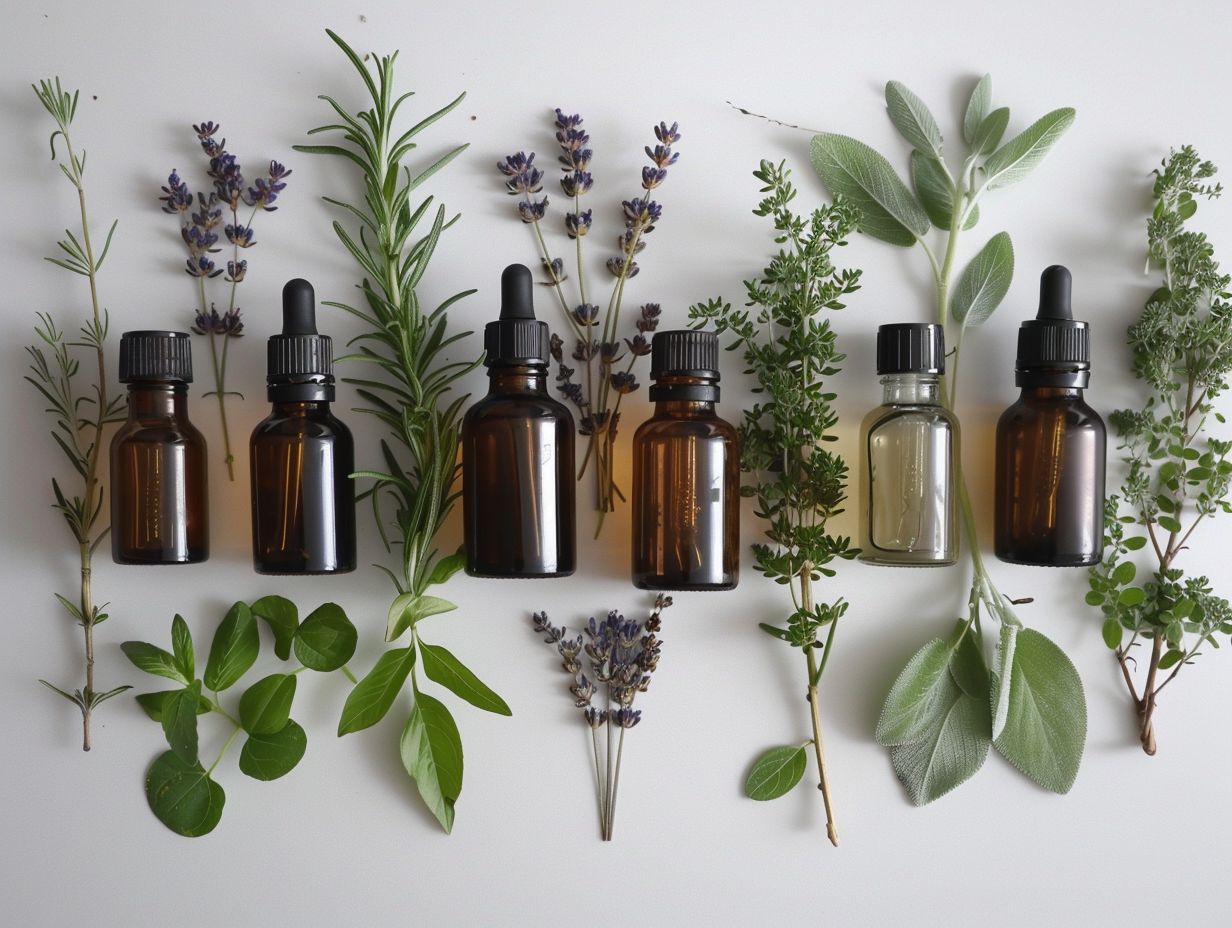
When a person experiences a bruise, the damaged blood vessels beneath the skin often lead to the formation of free radicals. Antioxidants like those found in lavender essential oil work by neutralizing these harmful molecules. This process helps prevent further damage to the skin’s cells and promotes a faster recovery from bruises. In addition, the antioxidant properties of essential oils can improve blood circulation, which is essential for delivering necessary nutrients to the affected area and aiding in the healing process. The use of these natural remedies not only addresses the visible effects of bruising but also supports overall skin health.
What Are the Best Essential Oils for Swelling and Bruising?
Several essential oils stand out for their efficacy in addressing swelling and bruising, with lavender, chamomile, geranium, rosemary, and frankincense essential oils being among the most notable options.
Among these top essential oils:
- lavender oil is known for its anti-inflammatory and calming properties, which can help reduce swelling and provide relief from bruising.
- Chamomile oil is another excellent option due to its soothing effect on the skin, promoting healing and reducing inflammation.
- Geranium oil possesses astringent properties that can aid in tightening skin and reducing bruising.
- Rosemary oil is valued for its analgesic properties, which can help alleviate pain associated with bruises.
- Frankincense oil is often used for its regeneration capabilities, promoting skin repair and reducing swelling.
Lavender Oil
Lavender oil is a versatile option to reduce pain when applied topically to the affected area, especially when diluted with a carrier oil for safe and effective use.
One of the key benefits of using lavender oil for pain relief is its soothing effect on the skin, making it a popular choice for those seeking a natural remedy. When applied topically, this essential oil can help alleviate discomfort associated with various conditions like headaches, muscle aches, and minor burns.
It is important to note that lavender oil must always be diluted with a carrier oil to prevent any adverse reactions, as it is highly concentrated. This dilution not only ensures safety but also helps in better absorption by the skin, enhancing its effectiveness in reducing pain.
Peppermint Oil
Peppermint oil is known for its cooling effect, making it a popular choice to reduce swelling and inflammation associated with bruises due to its powerful anti-inflammatory properties.
This natural oil is widely recognized for its ability to provide relief and comfort when applied to bruised areas. The cooling sensation it offers can help soothe the skin and alleviate discomfort caused by bruises. This cooling effect not only feels refreshing but also works to constrict the blood vessels, which can aid in reducing the appearance of bruising and minimizing swelling.
Eucalyptus Oil
Eucalyptus oil is valued for its anti-inflammatory properties that can help reduce inflammation in bruised areas, offering a natural and effective remedy for swelling.
On application, eucalyptus oil penetrates the skin quickly, targeting the inflamed area. Its remedial effects are attributed to its ability to stimulate blood circulation, which aids in reducing the swelling and promoting faster healing. The natural components of eucalyptus oil work synergistically to provide a soothing sensation and relieve discomfort caused by inflammation. Due to its anti-inflammatory properties, eucalyptus oil has been used for centuries as a natural remedy for various ailments, and its effectiveness in addressing bruises and swelling is well-documented.
Rosemary Oil
Rosemary oil is recognized for its role in aiding the healing process of bruises, offering support in reducing discoloration and promoting skin rejuvenation in affected areas.
With its potent anti-inflammatory and antioxidant properties, rosemary oil can help accelerate the skin’s recovery from bruises by reducing swelling and inflammation. Its ability to increase circulation to the affected area aids in the removal of stagnant blood, which can contribute to discoloration.
The rejuvenating qualities of rosemary oil can assist in promoting cell regeneration and repairing damaged skin. Regular application of this essential oil can not only speed up the healing process but also improve the overall appearance of the skin in the bruised area.
Helichrysum Oil
Helichrysum oil offers natural benefits for reducing inflammation in the affected area, known for its skin-soothing properties and support in the healing process of bruises.
The therapeutic advantages of helichrysum oil extend beyond just inflammation reduction; its ability to soothe the skin makes it an ideal remedy for various skin conditions. With its anti-inflammatory properties, it not only calms irritated skin but also promotes the body’s natural healing mechanisms. When applied to bruises, helichrysum oil aids in speeding up the healing process, diminishing discoloration, and reducing pain. Its gentle yet effective nature makes it a popular choice for those seeking a natural approach to skincare and wellness.
How to Use Essential Oils for Swelling and Bruising?
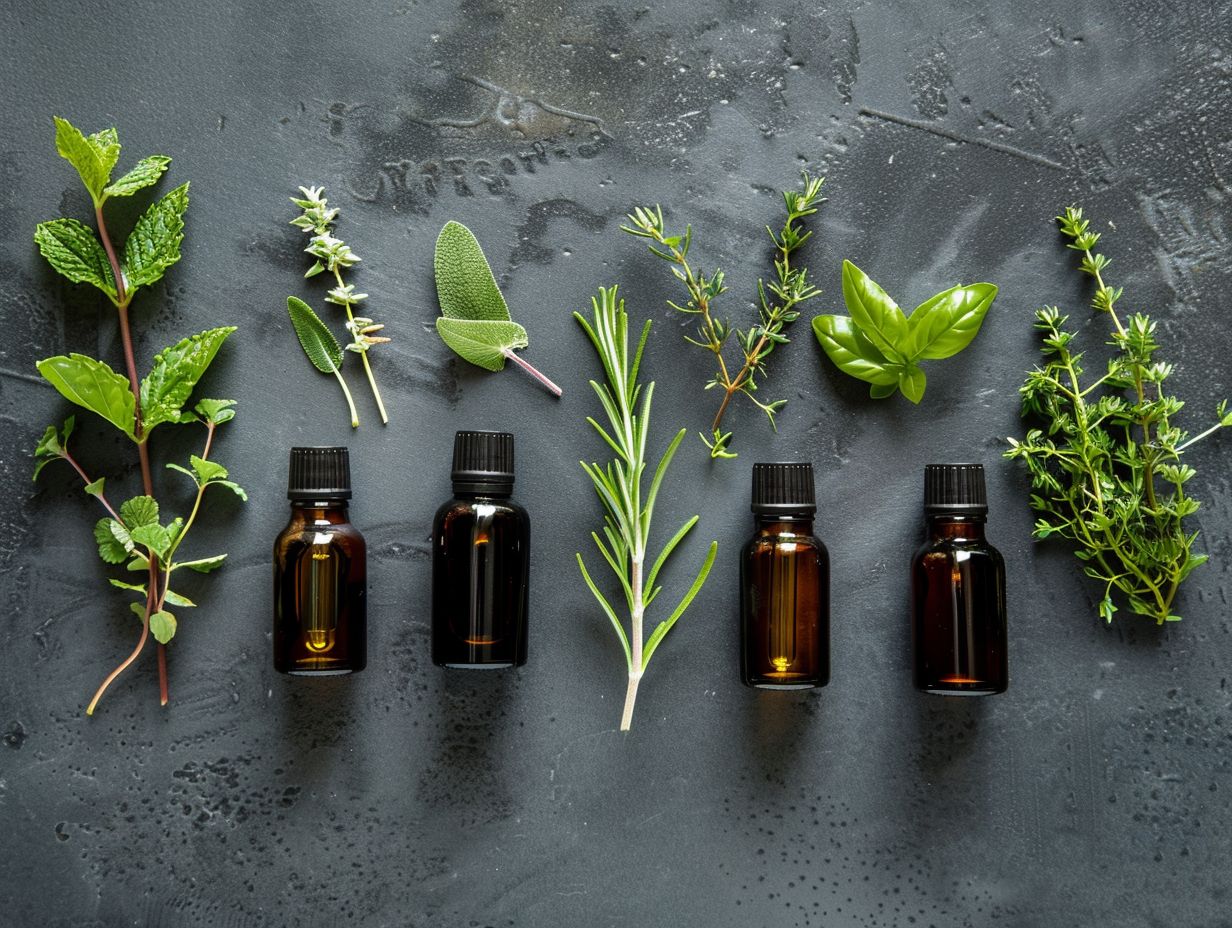
When applying essential oils for swelling and bruising, always remember that less is more – a little goes a long way. Diluting the essential oil with a carrier oil like coconut or almond oil helps in reducing the risk of skin irritation and ensures better absorption by the skin. Focusing on the targeted area where the swelling or bruise is located increases the effectiveness of the essential oil’s healing properties by concentrating their impact on the specific area that needs relief.
Topical Application
Topical application of essential oils like lavender is a popular method to address bruises effectively, allowing for gentle massage to aid in absorption and promote healing.
When essential oils are applied topically, they can be absorbed through the skin to reach the affected areas directly, amplifying their healing properties. The gentle massage involved in the application process not only aids in better absorption but also enhances circulation, further speeding up the healing process.
By massaging the oils into the skin, you allow them to penetrate deeply, targeting the areas that need healing the most. The sensory experience of the massage combined with the therapeutic scent of lavender oil can have a calming and soothing effect, promoting relaxation and stress relief.
Inhalation
Inhalation of essential oils can offer various benefits, including reducing swelling by promoting relaxation and enhancing respiratory function for overall well-being.
When essential oils are inhaled, their aromatic molecules stimulate the olfactory system, quickly reaching the limbic system in the brain which is responsible for emotions and memory. This rapid interaction can induce a calming effect, reducing stress and anxiety levels. The anti-inflammatory properties of certain essential oils can help alleviate swelling and pain. By supporting improved breathing, essential oils like eucalyptus or peppermint can open up airways, promoting better respiratory function and overall wellness.
Aromatic Bath
Enjoying an aromatic bath with essential oils can provide a natural way to reduce inflammation, soothe the skin, and unwind after a long day, promoting relaxation and healing.
One of the key benefits of indulging in a fragrant bath infused with essential oils is the magical effect it has on reducing stress levels. The calming scents work wonders in easing tension and calming the mind, creating a tranquil atmosphere perfect for unwinding. The skin-soothing properties of these oils can help in hydrating and nourishing the skin, leaving it soft and supple. Not to mention, the act of soaking in warm water itself can have a therapeutic effect on sore muscles and joints, offering a well-deserved break from the hustle and bustle of daily life.
Are There Any Side Effects of Using Essential Oils for Swelling and Bruising?
While essential oils are generally safe, some individuals may experience side effects such as skin irritation, allergic reactions, or interactions with medications when using them for swelling and bruising.
It is essential to conduct a patch test before applying any essential oil topically, especially if you have sensitive skin. This simple step can help identify any potential allergic reactions or skin sensitivities. Keep in mind that essential oils are highly concentrated and can be potent, so dilution is usually recommended to minimize the risk of adverse effects. If you notice any redness, itchiness, or swelling after using an essential oil, discontinue its use immediately and wash the area thoroughly.
Skin Irritation
Skin irritation is a common side effect of essential oil use, especially for individuals with allergies or sensitive skin. It is essential to perform a patch test and dilute oils properly to minimize the risk of adverse reactions.
Individuals with sensitive skin or allergies are more prone to experiencing adverse reactions when using essential oils. Patch testing involves applying a small amount of diluted oil to a small area of skin, usually the inner forearm, to check for any negative responses before using it extensively. Correct dilution practices are crucial to avoid skin irritation; essential oils should always be mixed with a carrier oil before applying topically. This helps reduce the potency of the essential oil and decreases the likelihood of skin sensitivities or reactions.
Allergic Reactions
Allergic reactions to essential oils can occur due to individual sensitivities or specific compounds within the oils. Research indicates that certain oils may interact with medications, leading to adverse effects in some cases.
It is essential for individuals to be aware of their sensitivities and potential interactions when using essential oils. Research is crucial in identifying the problematic oils that may trigger allergic responses or interfere with medication efficacy. By understanding the specific compounds present in essential oils, consumers can make informed decisions to minimize risks.
Studies have shown that some essential oils, such as lavender or tea tree oil, have been linked to allergic reactions and contact dermatitis when used undiluted. It is advisable to consult with a healthcare provider before incorporating new essential oils into your routine.
Interaction with Medications
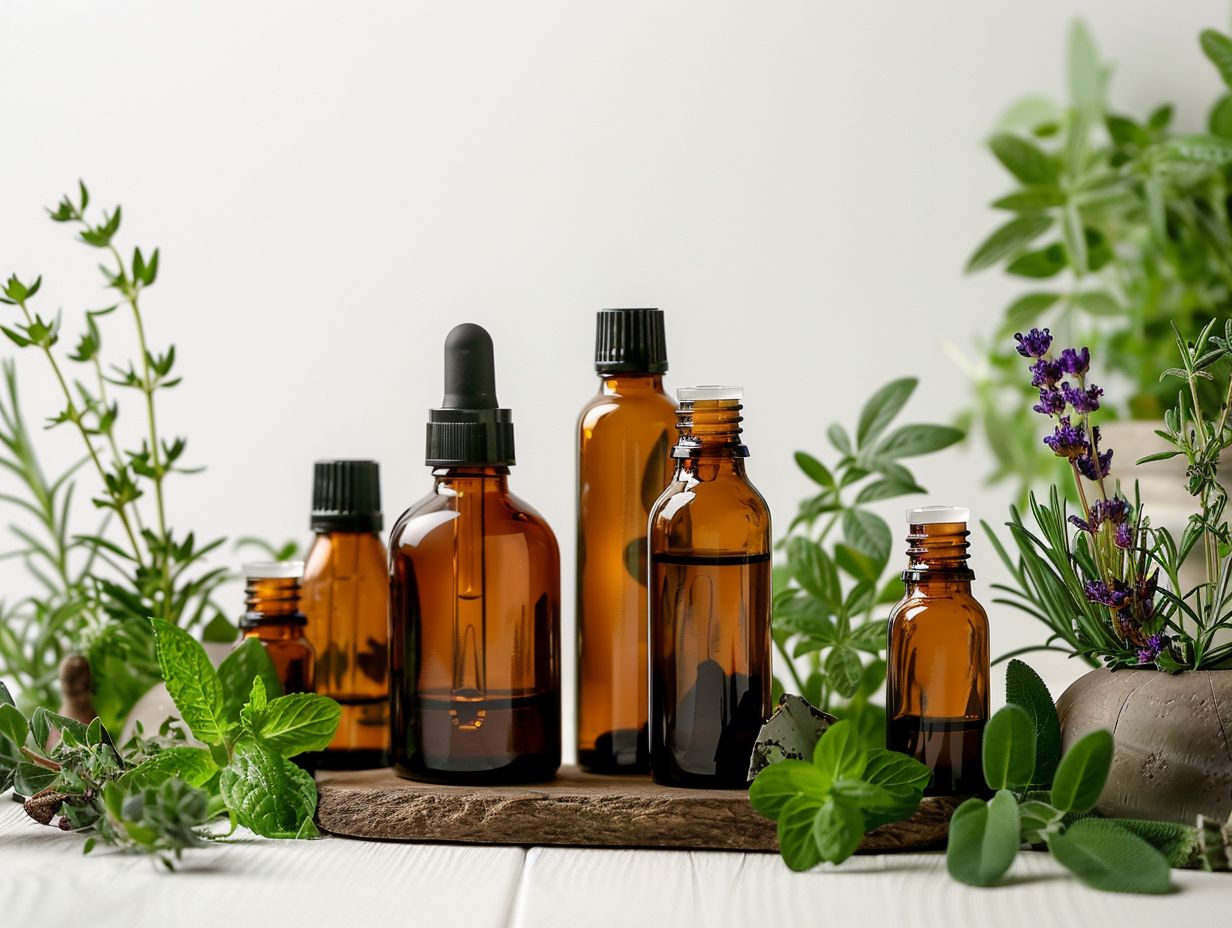
Essential oils may interact with certain medications, affecting their effectiveness or causing unintended side effects. It is crucial to consult healthcare providers and conduct thorough research before combining oils with prescription drugs.
When essential oils are used in conjunction with medications, there is a potential risk of altering the efficacy of the prescribed drugs. Certain essential oils can either enhance or inhibit the absorption and metabolization of medications in the body, leading to unpredictable outcomes. This interaction can result in unintended side effects or reduce the effectiveness of the treatment. It is essential to carefully consider the potential risks before incorporating essential oils into your medication regimen, as even seemingly harmless oils can have significant implications. Seeking guidance from qualified healthcare professionals is crucial to avoid any negative consequences.
When to Seek Medical Attention for Swelling and Bruising?
In cases of severe swelling or persistent bruising, it is advisable to seek medical attention, especially if symptoms worsen despite using essential oils like lavender, chamomile, geranium, rosemary, or frankincense.
Severe swelling can be a sign of an underlying issue that may require medical intervention. If the bruising does not improve or if there is tenderness, redness, warmth, or a sudden increase in size, it is crucial to consult a healthcare professional.
While essential oils can offer relief in mild cases, they may not always address the root cause of the problem. Persistent bruising that does not fade or starts to spread can indicate a more serious condition that needs immediate attention.
Frequently Asked Questions
What Essential Oils Are Good for Swelling and Bruising?
Some essential oils that are good for swelling and bruising include peppermint, lavender, chamomile, eucalyptus, tea tree, and frankincense.
How do Essential Oils Help with Swelling and Bruising?
Essential oils contain anti-inflammatory and analgesic properties that can help reduce swelling and pain associated with bruising. They can also improve circulation and promote healing.
Can I Apply Essential Oils Directly on Swollen or Bruised Skin?
No, it is not recommended to apply undiluted essential oils directly on the skin. It is best to dilute them with a carrier oil, such as coconut or almond oil, before applying to the affected area.
Which Essential Oils Should I Avoid for Swelling and Bruising?
Some essential oils, such as cinnamon, clove, and oregano, can cause skin irritation and should be avoided for swelling and bruising. It is best to consult with a healthcare professional before using any essential oils.
How Do I Use Essential Oils for Swelling and Bruising?
You can use essential oils by diluting them with a carrier oil and applying them topically to the affected area. You can also add a few drops of essential oil to a warm bath or use a diffuser to inhale the oils.
Are There Any Side Effects of Using Essential Oils for Swelling and Bruising?
While essential oils are generally safe, they may cause skin irritation or allergic reactions in some individuals. It is always best to do a patch test before using any new essential oil and to consult with a healthcare professional if you experience any adverse effects.

